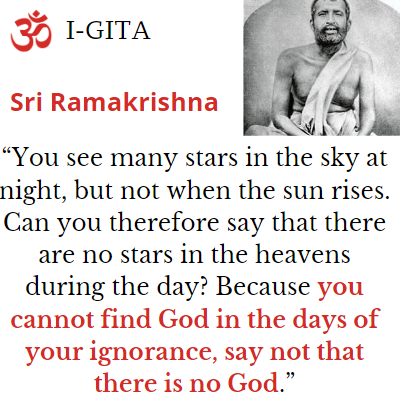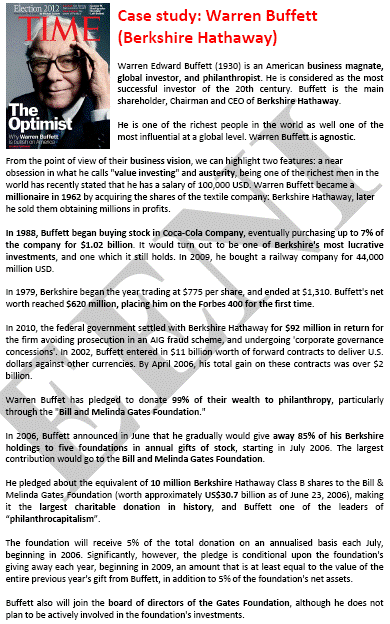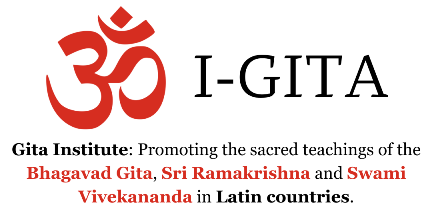Agnosticism: Ethics, Business, Bill Gates
16% of the World do not believe in anything (Agnosticism, Atheism)

Religions and Global Business -
Religious diversity
Agnosticism: philosophical position that holds that it is not possible to affirm or deny the existence of the divine with certainty.
Atheism: position that denies the existence of divinities or transcendent realities.
Sri Ramakrishna reflects about Agnosticism:

“You see many stars in the sky at night, but not when the sun rises.
Can you, therefore, affirm that there are no stars in the heavens during the day?
O man, because you cannot find God in the days of your ignorance, say not that there is no God.”
Sri Ramakrishna.

- Introduction to Agnosticism
- Famous Agnostics
- Bill Gates (Microsoft/Bill and Melinda Gates Foundation)
- Warren Buffett (Berkshire Hathaway)
- Giving Pledge
- Wole Soyinka (Nigerian Nobel Prize in Literature, Atheist)
- Case Study: TechGlobal in the Middle East
The educational aims of the Subject “Agnosticism, Ethics and Business” are the following:
- To learn the pillars of Agnosticism
- To understand the ethical principles of Agnostics
- To analyze the figures of Agnostics entrepreneurs

The Subject “Agnosticism, Ethics and Business” is included within the curriculum of the following academic programs at EENI Global Business School:
Masters: Religions & Business, International Business.

Bhagavad Gita Courses: Jnana Yoga, Dhyana Yoga, Realization of the Gita
Doctorate: Ethics, Religions & Global Business.
Languages:  or
or  Agnosticismo
Agnosticismo  Agnosticisme
Agnosticisme  Agnosticismo.
Agnosticismo.
The term Agnosticism derived from the Greek: “a” - not “gnosis” - knowing, i.e., the significance would be “non-knowledge.” Agnosticism is not a higher religion, but rather is a philosophy of life.
An agnostic admits that the human being, the finite, can neither understand nor reach the infinite, because of their ignorance, as cannot be demonstrated its non-existence, he/she adopts an agnostic position.
Agnosticism is as old as the history of higher religions. Great philosophers, mathematicians, and writers have been defined as Agnostics. In the axial age, the philosophers began to reflect on the lack of knowledge of God.
In the 19th century, the English writer and biologist Thomas H. Huxley, and one of the greatest defenders of theory of evolution of Charles Darwin, father of the writer Aldous Huxley (“A happy world”) stated:
“So I took thought, and invented what I conceived to be the appropriate title of agnostic.”
The great historian Arnold Toynbee, in the first volumes of his monumental “Study of History” declared himself as agnostic, but in the latest volumes; he declared himself as Christian.
The famous Spanish philosopher José Ortega y Gasset, warned of the dangers of Agnosticism, saying that it was a kind of surrender of the man in the search for God.
In any case, the position of this paper is respecting those who feel agnostics, even bearing in mind the reflection of Ortega and Gasset.
It is hard to know exactly the number of Agnostics in the World, as many surveys do not differentiate between agnosticism and atheism. The Pew Institute estimated that 16% of the World's population does not believe in anything (included both agnosticism and atheism), according to this data agnosticism would be the third “belief” in the World by some people, behind Christianity and Islam.
Ethics and Agnosticism.
We do not believe that there is a direct relationship between ethics, business, and agnosticism, both in a positive sense as negative. An Agnostic can have strong ethical principles but also cannot have them. Therefore, it is not possible to define prior ethical principles of Agnostics.
However, one of the largest philanthropic initiatives in the West, “The Giving Pledge” has been created by two of the World's leading entrepreneurs: Bill Gates and Warren Buffett, both agnostics.
In the business world, these positions are not usually expressed explicitly, but they have implications for ethics, cultural diversity and people management.
Sample - Agnosticism, Ethics and Business

Some famous Agnostics.
- Businessperson: Warren Buffett, Bill Gates, Elon Musk (founder of Tesla Motors and PayPal), and George Soros
- Writers: Samuel Beckett (Nobel Prize Literature), Jorge Louis Borges, Albert Camus (Nobel Prize Literature), Arthur Conan Doyle, Aldous Huxley, Franz Kafka, Thomas Mann (Nobel Prize Literature), Vladimir Nabokov, Marcel Proust, and Emile Zola (1840-1902)
- Politics: Michelle Bachelet (former President of Chile), Helen Clark (New Zealand Prime Minister), François Hollande (President of France), Ricardo Lagos (Former President of Chile), Jawaharlal Nehru (former Prime Minister of India), and José Louis Rodríguez Zapatero (former President of Spain)
In multicultural environments, in addition to organized religions (Christianity, Islam, Hinduism, Buddhism, Judaism), there is a growing population of non-believers, agnostics or atheists.
Global companies often adopt policies that recognize both religious and non-religious freedom.
Agnosticism and atheism in the global business context are not so much an "active position” as a growing component of cultural and ethical diversity. Global companies must recognize this reality to build inclusive environments and operate effectively across cultures.
TechGlobal is a multinational software company headquartered in Sweden, a highly secularized country where a large portion of the population identifies as agnostic or atheist. The company prides itself on its inclusive corporate culture, based on universal, non-religious ethical values.
In 2024, TechGlobal opens a new subsidiary in a Middle Eastern country where the official religion is an integral part of social and political life. The vast majority of the population identifies with the majority religion, and there are legal restrictions against promoting atheism.
(c) EENI Global Business School (1995-2025)
Top of this page










 WhatsApp
WhatsApp